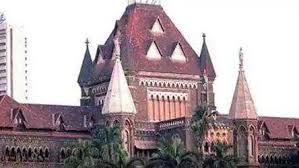A month ago, the Aurangabad seat of the HC had suppressed FIRs documented against 29 outside nationals expressing that there was no proof of infringement against them and that they were made “substitutes”.
The Nagpur seat of the Bombay High Court recently subdued an FIR documented against eight Myanmar nationals, individuals from the Tablighi Jamaat who had gone to the Nizamuddin Markaz in New Delhi in March, expressing that convincing them to go through preliminary “would cause grave treachery”, as there was no proof to show that they enjoyed any movement that was probably going to spread the infection.
An FIR was documented against the eight individuals, including ladies, by the Tehsil police headquarters in Nagpur on charges including infringement of lockdown and visa administers just as spreading Covid-19.
Afterward, a charge sheet was documented by the police under the Foreigners Act, Epidemic Disease Act, Disaster Management Act and the Indian Penal Code in July, following which the gathering – including individuals somewhere in the range of 36 and 60 years old – moved toward the HC for subduing of the FIR.
All individuals from the gathering had tried negative for Covid-19 in April. The police had, nonetheless, guaranteed in the charge sheet that they were answerable for the spread of the infection and had abused lockdown standards.
The police had depended on an explanation that said that the individuals had examined the Quran, offered namaz, and had familiarized themselves with the Indian Muslim culture.
Depending on the announcement, the division seat of Justice V M Deshpande and Justice Amit B Borkar stated, “… there is no material created by the indictment to demonstrate that the candidates were occupied with Tabligh’s work and they were associated with lecturing strict philosophy or making addresses in a strict spot. Unexpectedly, from the announcements of the observers referenced in the charge sheet, obviously, the candidates are not familiar with the nearby language and they examined the Quran and Hadis in their language.”
The gathering had submitted under the watchful eye of the court that they came to India through a trip to Kolkata on March 2 to go to strict classes as a feature of the Tablighi Jamaat. They remained in Delhi till March 5 and went to the Nizamuddin Markaz. A large number of individuals, including far off nationals, had taken an interest in the gathering at Nizamuddin Markaz, with a considerable lot of them testing positive for Covid-19 later.
On March 6, the eight individuals showed up in Nagpur. Their attorneys told the court that neighborhood specialists, including the extraordinary part of the police and the nearby police headquarters in Nagpur, were educated about them, remembering their booked remain for the city till March 21. They were set to leave for Myanmar on March 22.
Nonetheless, as the Janata Curfew was approached March 22, they were moved to a markaz focus in Nagpur and the Tehsil police headquarters was educated, the attorneys said. They added that from March 24 to March 31, during which the eight people remained in the middle, they were visited by a zonal official and a police group. On April 3, they were moved to an isolated establishment at the MLA inn in Nagpur. Following this, they tried negative for Covid-19 however an FIR was enrolled against them on April 5, the legal counselors told the HC, including that they were captured while in the institutional isolate.
The attorneys presented that as the nearby specialists were educated about their remain and their exercises were being checked, there was no doubt of the eight individuals resisting lockdown rules.
A month ago, the Aurangabad seat of the HC had suppressed FIRs documented against 29 unfamiliar nationals expressing that there was no proof of infringement against them and that they were made “substitutes” and imprisoned as opposed to being dealt with delicately during the Covid-19 pandemic.
The court deferred the issue for two months.
By: Vainavi chowdary





